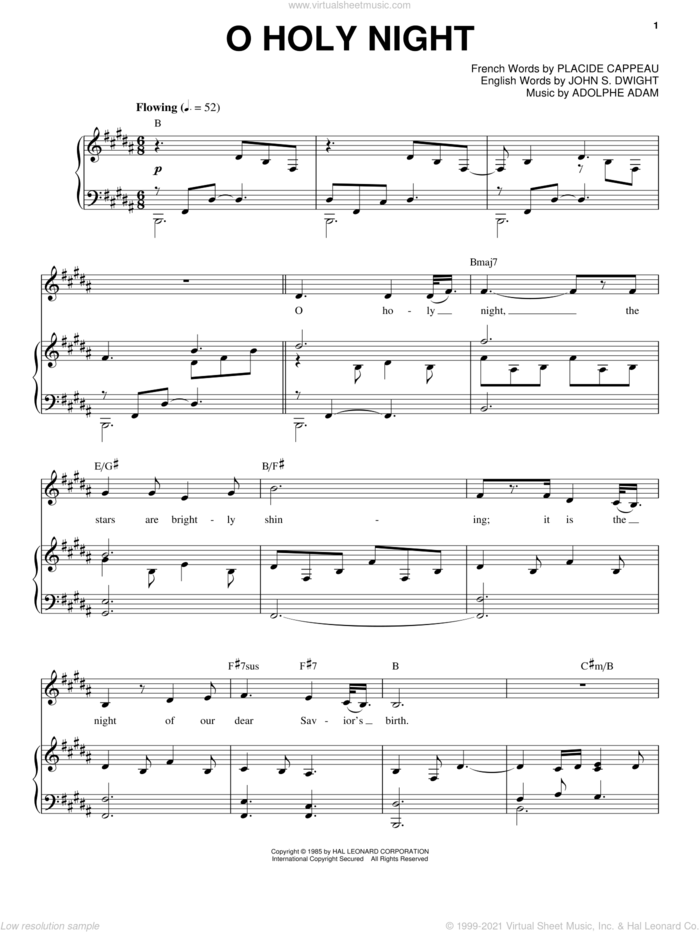
Yet the competing adaptations by John Sullivan Dwight and Danks shared the quality of being unilaterally upbeat, much unlike the original French song, “Minuit, Chrétiens” (“Midnight, Christians”), sometimes called “Cantique de Noël.” The hymn’s healing, pious and inspiring words tell us about the light brought by the birth of Jesus. By 1885, Dwight’s lyrics had become so accepted that Hart Pease Danks, a choir leader and songwriter best remembered for the tear-jerking ballad “ Silver Threads Among the Gold,” produced his own adaptation of them in a version entitled “O Night Divine.” In all fairness, the result could not be called an improvement. Ron Camarda, a Catholic priest and Marine Reserve major, sang “O Holy Night” at the bedside of a dying American Marine, wounded on a military mission.ĭwight’s healing, pious and inspiring words tell us, as Father Hunt reflected, about the light brought by the birth of Jesus. In Fallujah, Iraq, to convey a message of love from home, the Rev. Undocumented legends have persistently surrounded “O Holy Night,” including that trench-fighting during the Franco-Prussian War of 1870 (or alternately, World War I) temporarily ceased while French troops sang the song to their opponents on Christmas Eve.Ī better documented, if generally overlooked, instance of the nurturing power of “O Holy Night” was reported in The Marine Corps Times in December 2004.

Whether this religious aura influenced Dwight’s 1855 translation is debatable. “It might be a good thing to discard this piece whose popularity is becoming unhealthy,” one early critic wrote.

Former director of the school at the 19th-century Brook Farm commune in Massachusetts, Dwight witnessed the conversion to Catholicism of a number of his fellow commune members, including Isaac Hecker-later a Roman Catholic priest and founder of the Paulist Fathers, the first religious community of priests created in North America. Our fond memories of “O Holy Night” are closely associated with the familiar English words translated from the original French by the Unitarian minister John Sullivan Dwight. Hunt, S.J., then editor in chief of America, wrote that “O Holy Night” was one of his favorites among Yuletide songs, modestly adding: “I’ve sung it countless times in choir (the dull second tenor part).”


 0 kommentar(er)
0 kommentar(er)
